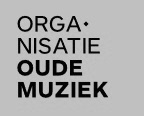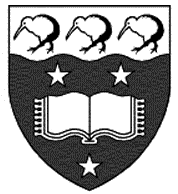Repertoire for the Geelvinck Fortepiano Competition 2018 ‘The Romantic Fortepiano’
for the Geelvinck Fortepiano Chopin Award 2018
This competition is dedicated to Frédéric Chopin and the award is an initiative created in co-operation with the Chopin Stichting Nederland (member of the International Federation of Chopin Societies).
Version 30-06-2018
First Round (10 July 2018)
The candidate performs several short pieces on a fortepiano and a square piano. The candidate can himself decide, which piece he performs on fortepiano or square piano. At least two pieces have to be performed on square piano.
1. Felix Mendelssohn
Etude no. 3 Allegro vivace, Op. 104b no. 3 (1838)
2. Franz Schubert
Impromptu in G♭ major, Op. 90 no. 3, D. 899 (1827)
3. one nocturne by Frédéric Chopin or John Field
4. one of the Études d’Exécution Transcendante (S. 139, 1851) by Franz Liszt
5. a short piece by Mikhail Glinka, Robert Schumann, Carl Czerny, Ignaz Moscheles, or another composer of the second quarter of the 19th century.
In total the candidate has to perform about 25 minutes.
Instruments:
1. fortepiano built by Collard & Collard in London ca. 1840
AA-a4 (full compass), two pedals: forte and sustain
2. square piano built by Collard & Collard in London ca. 1845
CC-a4 (6½ octaves), one pedal: forte
Both instruments are graciously on loan from the Kolthoorn Collection.
Second Round (11 July 2018)
The candidate performs at least two movements from each of the following two pieces:
a. Ludwig van Beethoven
Piano sonata no. 26, Op. 81a, Les Adieux (1809-1810)
1. Das Lebewohl
2. Abwesenheit
3. Das Wiedersehen
b. Carl Maria von Weber
Piano sonata no. 4 (E minor), Op. 70, J.287 (1819-22), 1st edition (1822)
1. Moderato
2. Menuetto. Presto vivace ed energico
3. Andante (quasi Allegretto) consolante
4. Finale. Pretissimo
The candidate is free to choose which two or three movements of each piece to perform. In total his performance should be not longer than 35 minutes.
It is important that the candidate improvises to use the una-corda, bassoon, moderator and damping appropriately. He or she should take advantage of this potential of the instrument in full!
Instrument:
fortepiano built by Conrad Graf (1782-1851) in Vienna, c. 1826
CC-f4 (6½ octaves), Viennese action with five pedals: una-corda, bassoon, moderator and damping
Graciously on loan from the Edwin Beunk Fortepiano Collection (Enschede).
Final Round (14 July 2018)
The finalists are required to perform:
Frédéric Chopin (1810-1849)
Piano concerto no. 2 in F minor, Op. 21 (1829/30)
in the original version of the composer for solo piano
– Maestoso
– Larghetto
– Allegro vivace
Instrument:
a fortegrand built by Ignace Pleyel (c. 1759 – 1829) in Paris, 1842
CC-g4 (6½ octaves), two pedals for forte and sustain
Graciously on loan from the Edwin Beunk Fortepiano Collection (Enschede).
There will be time slots scheduled for the finalists to practice on the Pleyel on Friday 13th July for a maximum of two hours each.
Important notice on the instruments
The candidate performs on historic fortepianos. In case of a technical problem, the jury may provide another fortepiano than the ones described.
Scores
The scores can be found on the website IMSLP.org
Please always chose the earliest version of the scores (i.c. the scores as written down by the composer himself, or as near as possible to this).
Candidates have to provide the organization well in advance of the competition by email with a digital copy of the scores of the pieces, which he or she is going to perform at each of the rounds.
Choices
Please e-mail to us the choices you make for the pieces you will be performing not later then 8th July. The scores should be e-mailed to us in pdf format.
Free choice
Please note that the candidates should always perform different pieces (also in 2019), including for the Square Piano Award. Hence, a candidate will not perform the same piece in another round, neither during the competition of the Square Piano Award.
Performance by heart
The jury shall take into consideration the quality of the execution: technique and aesthetic. In general, the jury prefers a performance right from the heart, rather than a technically perfect performance. In case the candidate performs one of the pieces by heart the jury will take this in positive consideration; however, the latter is not a requirement and the candidate may have the scores open in front of him or her in all cases.
The candidate should strive for perfect harmony between the musician and his instrument, thus the historic piano, as a tool to make music, becomes an integral part of the performer.
Performing on historic fortepianos and square pianos
The candidate should be well aware that the performances are on historic fortepianos. These instruments differ from modern pianos as well as from historical copies of period fortepianos.
Please note: a gentle touch and restrained loudness is appreciated.
Historic fortepianos should be performed on with loving, tender care for the instrument. It is emphasized that the jury shall take this into consideration and, hence, does not only judge the candidate on e.g. virtuosity.
Performing Chopin
Suggested reading: “How Chopin played” by Mrs. E.J. Hipkens, English-French edition by Alain & Luce Roudier, La Taupe Médite, Paris, 2016, ISBN 978-2-9556755-2-6
Rehearsing
Candidates are recommended to try-out the historic fortepianos used in the competition in advance. Also there are some limited possibilities to rehearse on these fortepianos. Please arrange this with the organization in advance.
Candidates can practice on these and other historic fortepianos from 7th July afternoon onwards. All are allotted the same maximum amount of time to practice on historic fortepianos. Please contact us well in advance to reserve practicing time.
Please note that you can take advantage of master classes and other opportunities to try-out the historic pianos at the museum.
Replacement of the indicated historic instruments used for the competition
The organization is at any time allowed to replace any of the historic fortepianos and square pianos mentioned above for another fortepiano of approximately the same period and action. No claim can be made against the decision of the festival organization to replace an instrument by another historic instrument of approximately the same period and action.
Dress code
Candidates are requested to perform in decent dress, which is traditional for chamber concert performances.













